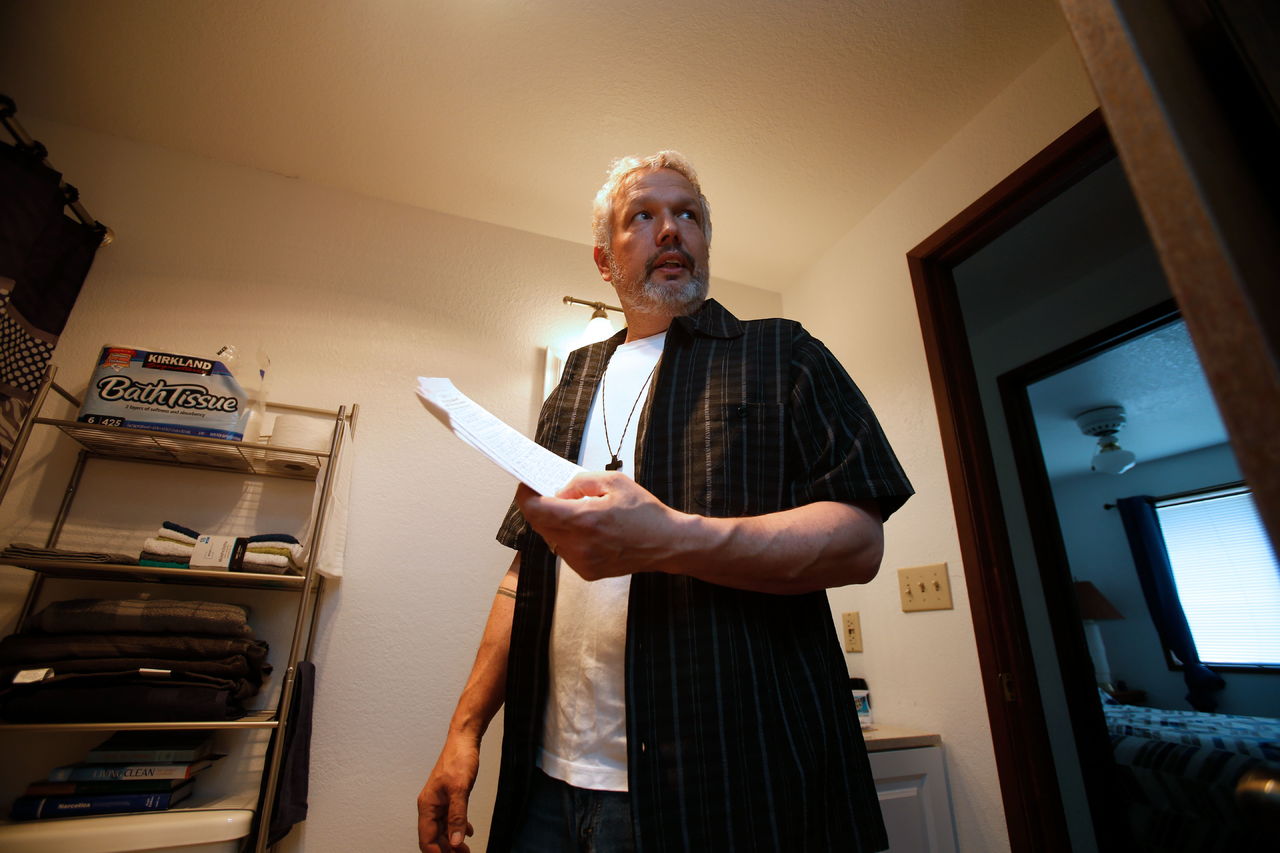MARYSVILLE — While Everett moves forward with its program to build low-barrier housing for the homeless, Marysville is also taking a lower-key approach.
Everett has rehoused at least seven chronically homeless individuals, and pledged to build a permanent home for 60. Last week the Legislature approved $1.5 million in Housing Trust Funds for the project in its budget.
In the meantime, Marysville is now providing transitional housing for three formerly homeless men.
The men are scheduled to move into a city-owned three-bedroom rambler located near downtown on Monday.
It’s an unassuming house with a small yard. The furniture is scuffed, the accoutrements simple. There’s a pipe in the ceiling from where a wood-burning stove once stood.
The house is by no means luxurious, but it gets the job done in providing a clean place for the three men to live, each with their own bedroom.
All three are former residents of the Everett Gospel Mission who have completed a treatment program for whatever issues they might have.
“Not necessarily chemical addiction (but) that may be part of it,” said Dan Hazen, the executive pastor of Allen Creek Community Church. “It could be job retraining, could be life skills.”
In a three-way partnership, the city is providing the land, the mission is providing the treatment and ongoing social services support to the three residents, and the local church community, led by Allen Creek, is providing the rest.
“Our role as the faith community in Marysville is to be their neighbor,” Hazen said.
That includes furnishing the house with donated furniture and supplies, making sure there’s food in the fridge, and helping the three residents re-establish their connections to the community.
The house is located in a largely commercial area close to downtown Marysville, but the city isn’t publicizing its location or otherwise advertising its presence. The house has no immediate neighbors, and that was considered ideal to help the formerly homeless residents of the new house gradually work their way back into society.
“Keeping it on the down-low is really for their benefit,” Hazen said.
For now, the program is not letting felons take part, he said.
The program’s model is based on the mission’s Lydia House, a transitional home for women in Snohomish that is also coupled with ongoing treatment, Hazen said.
“Same kind of issue, this is for people who are at the end of the process,” he said.
The city considers this house a pilot program, which, if successful, could be replicated, possibly on a more permanent basis, Marysville Mayor Jon Nehring said.
Success will depend on the ability of residents to make the transition into permanent independent living, Nehring said.
That means some of the residents are working and will pay rent and utilities, with the Gospel Mission covering any difference.
“And we also need to see good support from the community, and I think we’ve seen that in an incredible way with this one,” Nehring said.
Hazen, and Allen Creek, have taken the lead in organizing the faith community around the project.
Different churches adopted different parts of the house. For example, the Hillside Church arranged for the living and dining room furniture. Marysville Free Methodist Church provided dishes, cups and utensils.
St. Philips Episcopal Church, Bethlehem Lutheran and Marysville Foursquare Church outfitted one bedroom each, and the Marysville Police Officers Association donated a new vacuum and cleaning supplies. The appliances were donated by the Marysville Judd &Black store.
Done-N-Unspun, a group affiliated with Narcotics Anonymous that meets at Allen Creek, provided supplies for the bathroom. They also left some of their literature and three copies of their emergency call list.
The various organizations have already started to stock supplies for a possible second location if this one succeeds, Hazen said.
As an extra precaution, the church groups and the mission will have regular contact with the residents to make sure everything is going well and no problems arise.
Hazen said that if for some reason one or more of the residents isn’t able to succeed or otherwise falls out of their treatment program, he will go back to the mission.
The churches and the mission both are working to ensure they won’t contribute to homelessness, he said.
Chris Winters: 425-374-4165; cwinters@heraldnet.com. Twitter: @Chris_At_Herald.
Talk to us
> Give us your news tips.
> Send us a letter to the editor.
> More Herald contact information.

























